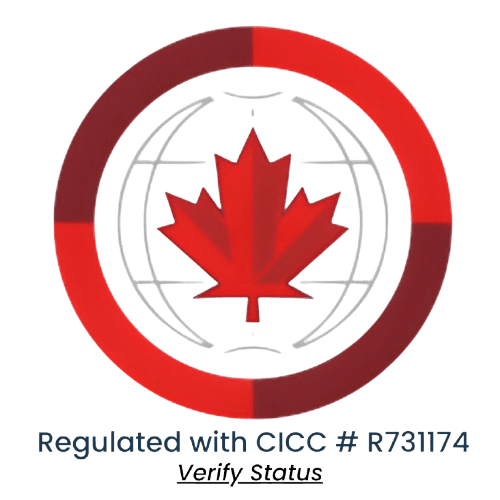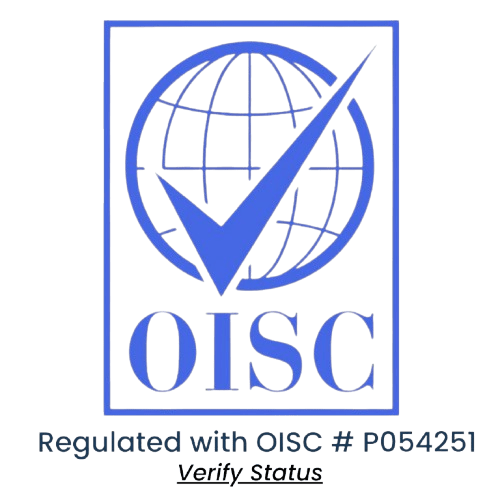Introduction
Navigating the complexities of the National Occupational Classification (NOC) codes is crucial for a successful Canadian immigration application by matching your work experience with specific job requirements. Even small errors can lead to serious consequences, such as delays, rejections, or a five-year ban. In this guide, we delve into the top 5 NOC code mistakes that applicants commonly make and provide practical tips on how to avoid them, ensuring your application stays on track.
Key Takeaways
- Incorrect NOC code selection can result in application rejection or severe penalties.
- Accurate understanding of job duties is crucial for selecting the right NOC code.
- Misrepresentation can lead to a 5-year ban or deportation.
- Consulting with immigration advisers minimizes errors.
- Regularly update and verify your NOC code to align with the latest changes in Canadian immigration policies.
What are NOC Codes?
The National Occupational Classification (NOC) is a standardized system used by Immigration, Refugees, and Citizenship Canada (IRCC) to assess the work experience of applicants. Each NOC code corresponds to a specific job title and its associated duties, skills, and education requirements. Understanding and selecting the correct NOC code is crucial for eligibility in various immigration programs such as the Express Entry system and the Federal Skilled Worker Program (FSWP).
For example, a software engineer might be classified under NOC 2173, while an IT consultant would fall under NOC 2171, despite both roles involving technology.
Structure of NOC Codes
NOC codes are structured into a five-digit format, where each digit represents a specific attribute of the job:
- First Digit: Skill type
- Second Digit: Skill level
- Third Digit: Occupational group
- Fourth Digit: Major group
- Fifth Digit: Minor group
How to Find and Use the Right NOC Code
Finding and using the correct NOC (National Occupational Classification) code is crucial for your Canadian immigration or job search process. To identify your NOC code, start by reviewing the official NOC website and using their search tools. Enter keywords related to your job title, main duties, or skills to find potential matches. Once you’ve found a code that closely aligns with your occupation, carefully compare your job responsibilities with the description provided. Remember, the NOC code should reflect your primary job duties, not just your job title. If you’re unsure, consult multiple sources like immigration consultants or career advisors for guidance. Using the right NOC code is essential as it affects your eligibility for various immigration programs and accurately represents your skills to potential employers.
Importance in Immigration
Selecting the right NOC code is essential for ensuring that your work experience aligns with the requirements of the immigration program you are applying for. An incorrect NOC code can lead to the rejection of your application, as it may be seen as misrepresentation of your qualifications and work experience.
Common Mistake #1: Selecting the Wrong NOC Code
One of the most frequent errors applicants make is choosing a NOC code that does not accurately reflect their job experience. This mistake often occurs when applicants base their selection on job titles rather than the actual duties they perform.
Example: Imagine you’ve spent months preparing your application, only to have it rejected because you chose the NOC code “Sales Manager” instead of “Marketing Coordinator.” The rejection is based not on your qualifications but on a simple yet critical oversight—mismatching your job duties with the wrong NOC code.
How to Avoid This Mistake:
- Thoroughly research the job duties associated with the NOC code.
- Consult the official NOC code list provided by IRCC.
- Seek advice from immigration consultants if unsure about the correct NOC code.
Common Mistake #2: Misrepresentation of Job Duties

Misrepresentation, whether intentional or accidental, is a serious issue in the Canadian immigration process. It occurs when applicants describe their job duties in a way that does not match the chosen NOC code.
What is Misrepresentation?
Misrepresentation is defined as providing false or misleading information in your immigration application. It can lead to severe consequences, including the rejection of the application, a ban from reapplying for up to five years, and even potential deportation if discovered after obtaining permanent residency.
Consequences of Misrepresentation:
- Immediate rejection of your application.
- A five-year ban from reapplying for Canadian immigration.
- Possible deportation if discovered after obtaining Permanent Residency (PR).
Correctly Describing Job Duties:
- Compare your job description with the tasks listed under the NOC code.
- Use examples that accurately reflect your daily responsibilities.
- Avoid exaggeration or including tasks that do not align with the NOC code.
Common Mistake #3: NOC Code Mismatch with Experience
A mismatch between your selected NOC code and your actual work experience is another common mistake that can jeopardize your immigration application.
Understanding NOC Code Mismatch
A NOC code mismatch occurs when the work experience you claim does not align with the job duties and responsibilities outlined in the NOC code you selected. This discrepancy can raise red flags for immigration officers, leading to further scrutiny of your application.
Consequences of a Mismatch:
- Application delays due to additional verification processes.
- Rejection of your application for failing to meet the program requirements.
- Damage to your credibility with immigration authorities.
Best Practices to Avoid Mismatch:
- Carefully match your job duties with the NOC code description.
- Document your work experience with detailed references and job descriptions.
- Consult an immigration adviser to ensure that your work experience aligns with the selected NOC code.
Common Mistake #4: Overlooking NOC Code Updates
NOC codes are periodically updated by the Canadian government to reflect changes in the labor market. Using an outdated NOC code can negatively impact your immigration application.
Frequent Updates to NOC Codes
The Canadian government updates NOC codes to ensure they accurately reflect the evolving job market. These updates may include changes to job titles, descriptions, and skill levels, which can affect your eligibility for immigration programs.
Impact of Using Outdated Codes:
- Your application may be rejected due to non-compliance with current standards.
- You may miss out on opportunities in immigration programs that require specific NOC codes.
Staying Informed:
- Regularly check the official NOC website for updates.
- Subscribe to newsletters from trusted immigration sources.
- Consult with immigration professionals to ensure your NOC code is current.
Call to Action
Avoiding these common NOC code mistakes is essential for a successful Canadian immigration application. If you’re unsure about your NOC code or want to ensure your application is error-free, consult an immigration adviser today. Proper guidance can save you time, stress, and the emotional suffering of a rejected application. Contact us



